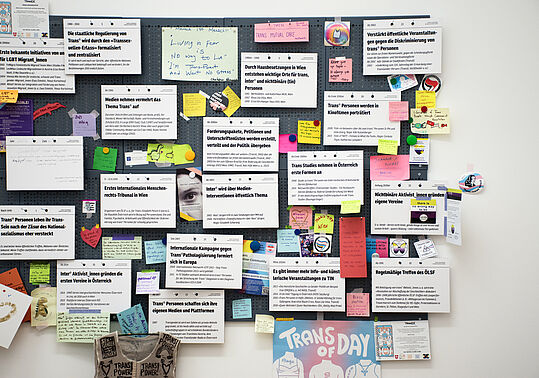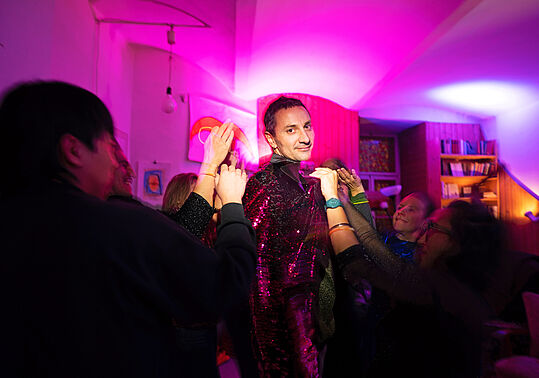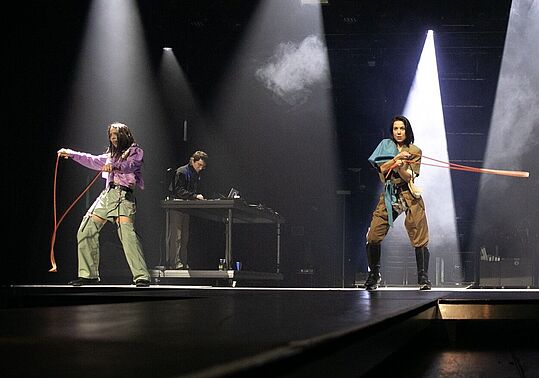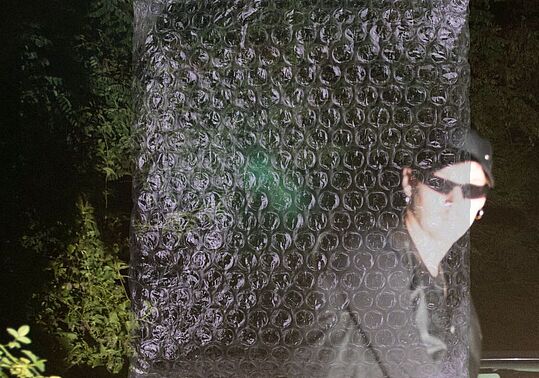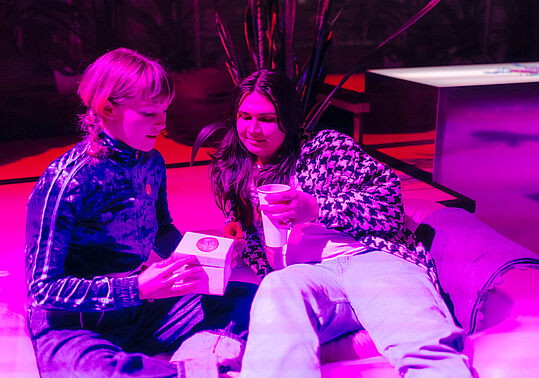Conceptualize being human
Originally you studied medicine, now you combine scientific and artistic approaches to new ways of thinking and approaching things. Can you briefly explain how this shift came about?
Laura Stoll: Would you say it is a shift? I think I have always followed a singular interest: How do people function, how do I function, what does it mean to be human? Of course not all art focuses on these questions, but essentially it is a very anthropocentric endeavor. Regarding medicine I really like the German word ‚Heilkunst‘ - the term can be used instead of medicine and literally means ‚the art of healing’. I agree that it is an art. At the same time, modern medicine is built on scientific grounds epistemologically, and at a certain point I wanted to do my inquiries without the restrictions that come with that. Singularly, it is also a question what ‚healing‘ implies - it does have a rather strong normative connotation.
At the center of your performance dissect | attach is the interplay of question and answer, whereby not every question will get an answer. This game is oriented towards questions that are common in medicine and psychology. Why did you choose this approach?
Laura Stoll: I have not really chosen the approach, I would much rather say it has chosen me. During my medical studies and research I have administered every psychological questionnaire I could find to myself and in consequence diagnosed myself on quite some levels. Obviously I have also asked many questions to patients during my training. Later on, when I started working artistically, I became interested in recontextualizing these methods, questioning how they work and what happens on an interaction level when they are used. And I am still interested in that.
In contrast to the other HUGGY BEARS 2021 projects, you have decided against the grandstand and will perform at ground level, with the audience around you. Why this special setting?
Laura Stoll: What I do is not a show, it is an experiment and a contemplation on how we try to understand ourselves and measure ourselves and each other. It draws strongly of the interaction between me and members of the audience, but also on a group of people examining things not presented on a stage but rather happening between humans. Ideally, I would like to open a room to think about how we conceptualize ourselves as humans.
You have now been able to work on your project for a year as part of HUGGY BEARS. How was this year in the mentoring program for you?
Laura Stoll: Being part of the HUGGY BEARS mentoring program has given me a broader perspective towards my project. It has been interesting to put it in connection to how other people work performatively. Comparing it to other practices has also lead me to question myself and aspects of my work a lot, which has been difficult at times - why am I not doing a ‚show‘, how can something like this function in the setting of a stage and how, in turn, can the stage be transformed. But I think in the end I have a clearer vision of what I want to do and why I want to do it.



